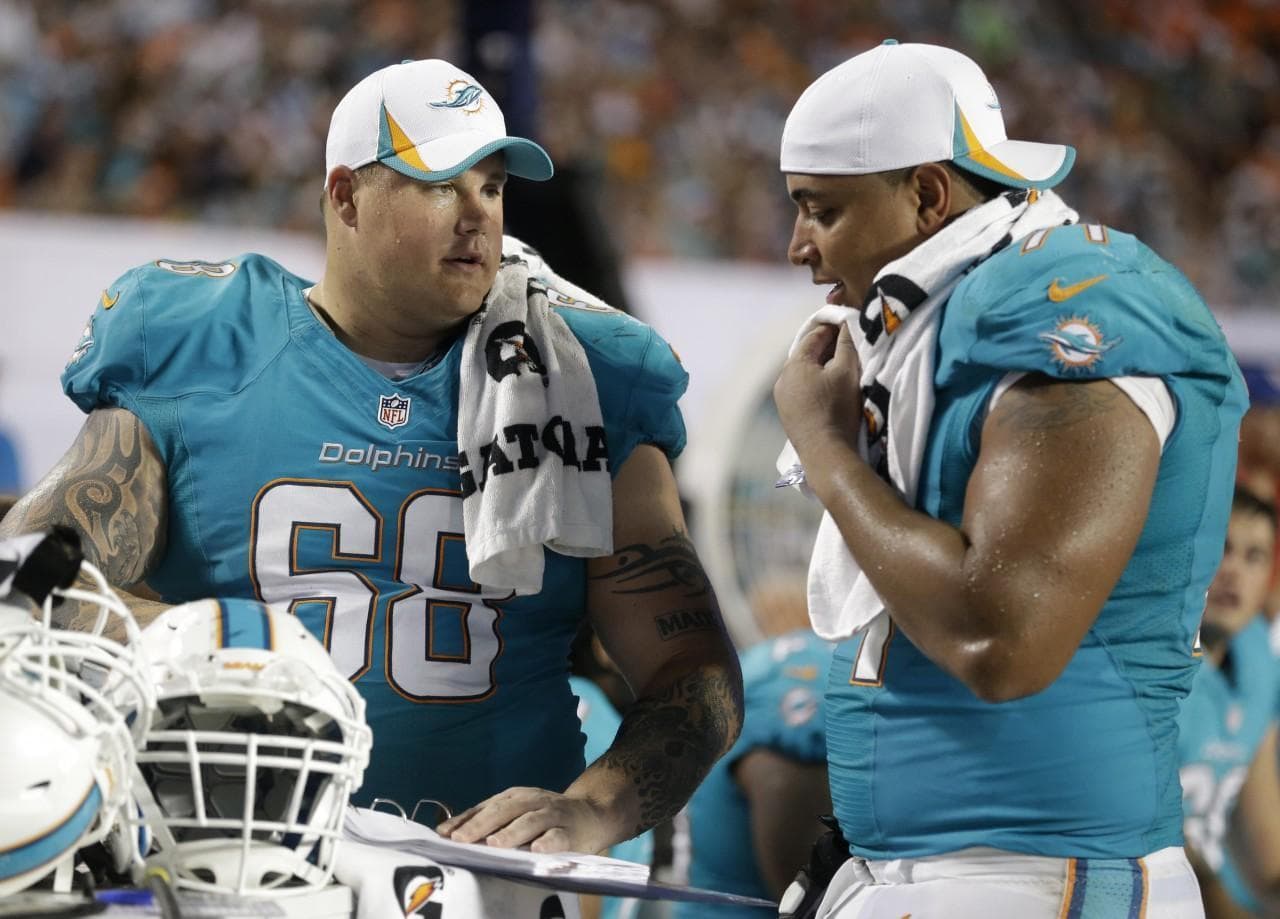Advertisement
In the news
Miami Dolphins’ Bullying Scandal
Resume
On Sunday, the Miami Dolphins suspended guard Richie Incognito for allegedly harassing teammate Jonathan Martin, who had left the team last week. Evidence against Incognito suggests that he left Martin vulgar voicemails, which included racial insults, threats to Martin and his family and possible attempts at extortion.
Responses to these circumstances have been wildly varied. Some sources within the NFL have opined that Martin should have confronted Incognito physically and settled the matter in the locker room. Others have seen the controversy as an opportunity for the NFL to address the culture of macho posturing with an eye toward recognizing that harassment and bullying are harassment and bullying, whether the victim is a shy third grader or a 300-pound tackle.
Slate executive editor Josh Levin and Emily Bazelon wrote about the scandal. Levin also co-hosts Slate's sports podcast "Hang Up and Listen." He joined Bill Littlefield.
BL: Josh, you pointed out in a recent article that Richie Incognito had been disciplined – even let go – by teams that he played for in college and in the NFL for violent behavior on and off the field, but that the league provided what you called "a supportive, nurturing environment" for behavior like Incognito's. How so?
JL: So, Incognito was voted the dirtiest player in the NFL by his peers in 2009. He fell to second place in 2012, but he is considered to be a guy who is very tough and dirty — kind of in a positive way in a lot of senses. As an offensive lineman, you want to really be a mauler. You want to be nasty. The kind of things that Incognito did on the field — headbutting — and off the field — when he was in college being convicted of assault among other things, these are the kind of things that kind of are not qualities that you don't want in your offensive linemen. So teams were looking for excuses to keep Incognito on the roster — to keep him around.
BL: Some NFL players have suggested the things Incognito allegedly did do not differ from what goes on every day in NFL locker rooms. Does it matter that this goes on elsewhere and should we just shrug it off and say 'Oh, yeah, those are guys being guys in the NFL?'
JL: Well, hopefully this does raise questions about the whole NFL and not just what's happening in the Dolphins locker room. The reactions that we've heard from a lot of the players [include those] that said Martin and Incognito were friends, that he was just trying to mentor him, that things like rookie hazing — the idea that rookies should pay $10,000 for the veterans to have dinner ... are not really thought of as strange, bizarre, bad. These are just things that have been part of football culture for decades.
BL: The NFL has declined our request for an interview about this situation, but they have announced that they have hired an attorney to conduct an investigation. The attorney is Ted Wells, who has run other sports-related investigations, including one involving the NBA players' union. Is that the right move by the NFL?
JL: Yeah, I think so. I mean, one of the things that was really telling here is that there's just no institutional leadership here. The Dolphins — you were referencing [that] the Dolphins general manager allegedly told Martin he should deal with this by punching Incognito — the idea that this was supported institutionally is pretty disturbing. And so I think what the league needs to do is look at what its institutions are telling players to do, what they are encouraging explicitly and implicitly, and then draw a pretty bright line about what is OK and what's not OK.
BL: Football being football, does it seem likely that the league would be able to address this sort of behavior as anything other than a public relations issue, even if Commissioner Goodell was determined to do that?
JL: I think that they need to try, and I think that they need to celebrate players like Johnathan Martin, players like Brandon Marshall, [who] came out this past week talking about macho culture and how detrimental it can be to tell our sons that they just need to toughen up, and shake it off, and not really express their feelings. The hope here is that a player like Martin can show you can speak out on this, and you don't have to fit into this mold of what culturally we feel an NFL player has to act like.
This segment aired on November 9, 2013.